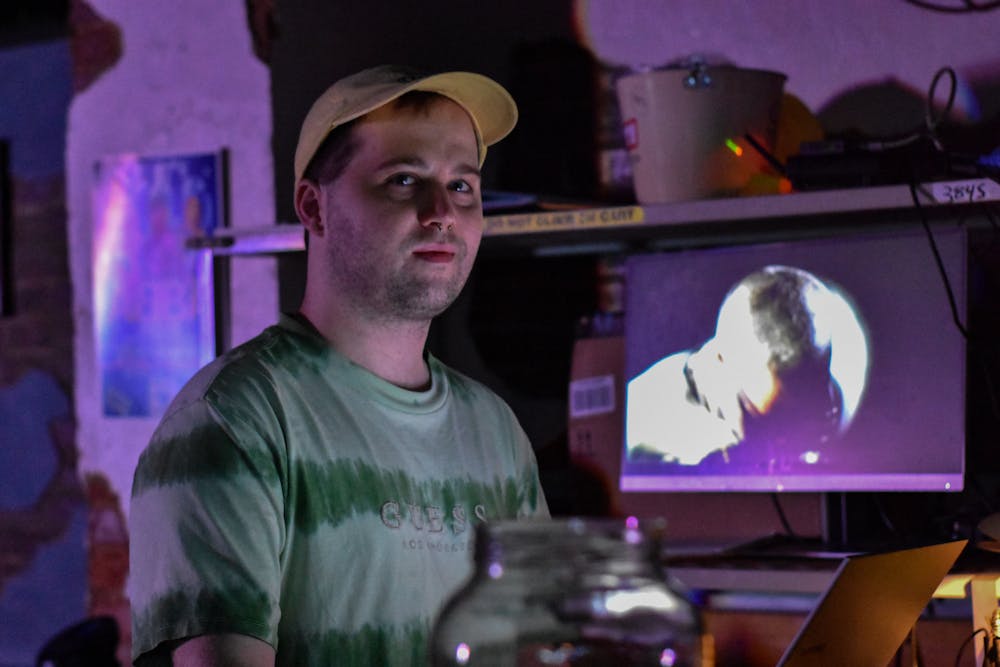Music can help make gay clubs feel like centers of community for everyone, according to those who create and participate in it.
Songs in Columbia's LGBTQIA+ clubs and venues, like the Capital Club and PT's 1109, reflect the diverse tastes and experiences of performers and attendees.
Elena DeVour, a performing drag queen and Show Director at the Capital Club, said the club looks to feature a diverse range of performers, including people of color, transgender performers and drag kings. She said it’s important to the club to lift up artists who are queer themselves or support the LGBTQIA+ community as allies.
The music — whether sung live or lip-synced — is chosen by the performer, according to DeVour. The Capital Club features a “melting pot” of music varieties: from rock to rap songs and even traditional Egyptian music, she said.

DeVour said there is a carefree attitude and freedom of expression that accompanies drag and performing to a range of music styles.
“You can kind of do whatever you want with music, and no one can tell you you’re doing it wrong, cause it’s drag,” DeVour said.
The variety of music played by DJs in clubs and venues can introduce people to new genres and new generations of music, according to Lady T, a frequent performer at PT’s 1109 club.
Lady T said music with a message of unity helps contribute to the clubs feeling like safe, community-driven spaces. She mentioned Cher and David Bowie as older artists who, while not necessarily out members of the LGBTQ+ community, are examples of allies and are icons of the community’s musical identity.
“Now of course, you have Lady Gaga, you have a whole bunch of other artists that stand with the LGBTQ+ community, who actually do things for the LGBTQ community,” Lady T said.
Lady T takes her stage name from Lady Gaga, whose music, outfits and choreography are staples of Lady T’s performances. Lady T’s sets include a variety of lip-synced as well as live-sung vocals, which she said is more common amongst drag performers than one might think.
“I try to encourage that, because it’s really awesome,” Lady T said. “People seem to have a great response to it, they like to hear live singing.”
Gay-friendly clubs in Columbia aim to entertain club-goers with drag performances and DJ-ed music, while also offering an outlet to express themselves without restraint, according to DeVour.
“It’s a home — even if you never come — we’re all family here,” DeVour said. "It’s a place for you to come, be yourself, forget about all the bullsh*t in the world and just enjoy good music and a great show."

Though drag performers can choose the music they perform to, some make certain choices depending on the crowds at the clubs.
Dorae Saunders, who performs in drag as well as MC’s events, said the demographics of the club, such as age, can determine if older or newer mixes are played. Considering the backgrounds of everyone in a club is paramount to creating a welcoming club atmosphere, according to Saunders.
“I want them to feel included, a sense of inclusivity that everyone is welcome, and that the music reflects everyone that’s in the bar,” Saunders said.
Saunders said she looks for lyrical and uplifting content in the music that she enjoys and chooses to perform.
The thematic messages of some songs, such as Ray Charles’s "It Ain't Easy Being Green," are especially compelling to certain audiences, in Beau O’Bishop’s experience.
O’Bishop is a Black drag king, or male impersonator, and performs the song, which has lyrics that describe feeling overlooked and undervalued due to the color of one’s skin.
“I’ve performed that song before, and I’m walking through the crowd accepting dollar bills and I’m looking at some people who are weeping because they’re like, ‘I heard what you said. You said that it's not easy for people who look like you,'" O’Bishop said.
O’Bishop said he often performs to music by Todrick Hall as Hall, an openly LGBTQIA+ musical artist, actor and choreographer, represents experiences of the community.
O’Bishop got his start performing by winning a contest he had entered, resulting in him opening for Hall at a 10,000-person concert in Charleston, he said.
The enjoyment of the crowd is better than any financial incentive to perform, according to Lady T.
“If I can maybe reach at least one person by my performance — whether I’m all covered in blood because I’m doing some kind of Halloween performance or if I’m actually singing a ballad or something — if I can reach one person to make them smile or to make them laugh, enjoy, that’s what I look at,” Lady T said. “It’s all about the crowd ... if there weren't any crowd, we'd just performing to chairs, which I've done that before.”
The key role that music plays in society is reflected in the clubs as well, according to O’Bishop.
“Could you imagine going to a bar, and there’s no music?” O’Bishop said. “That wouldn’t even be a bar, it would just be going to any place and just being there.”
Hannah Ballantyne contributed to the reporting in this article.

